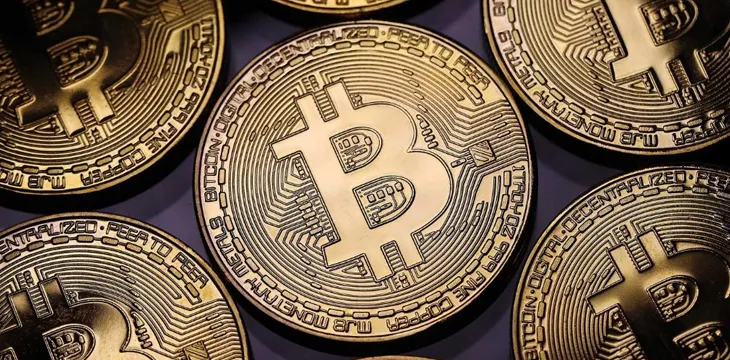|
Getting your Trinity Audio player ready...
|
The European Union (EU) is quickly setting itself up to be the global leader behind blockchain adoption. Across the continent, leaders are pushing for clarity on regulations and the overall sentiment is that the cryptocurrency space will receive the attention it deserves before the end of this year. As this happens, the U.S. could potentially be left behind, scrambling to catch up to the advanced level of the EU.
In France, President Emmanuel Macron wants increased attention given to technologies like the blockchain in order to enhance the agriculture industry and trace food supply chains. This past weekend, he argued at the 56th International Agricultural Fair in Paris that there is a desperate need to authenticate and track agricultural products in light of growing concerns over food sources. He asserted, “Let’s do this in Europe, [be at the] the vanguard of agricultural data by developing tools that will track every product from raw material production to packaging and processing.”
If Macron is able to gather support from other members of the EU, he would like to see a new EU task force established to enforce agricultural supply standards and fight food fraud.
Germany recently announced that it had opened a blockchain consultation process. It has now gone a step further and the Cabinet of German, the country’s chief executive body, will introduce a blockchain strategy by the middle of this year. As several countries across the EU—including Poland, the UK, the Netherlands, Denmark and Lithuania—are operating FinTech sandboxes, there is growing emphasis on having blockchain regulations in place.
This past January, Boerse Stuttgart Group, the operators of the second-largest stock exchange in Germany, launched a new crypto trading app called Bison. It allows charge-free trading on Bitcoin Core (BTC), Ether (ETH), Litecoin (LTC) and Ripple (XRP), and propelled the crypto ecosystem in Germany to an entirely new level.
About a week ago, the Financial Action Task Force (FATF) finished working on its prerequisites for the management, control and observation of financial institutions that provide crypto solutions in the FATF’s member countries. The inter-governmental group stated that all the countries over which it has authority need to make concerted efforts to oversee and manage crypto firms the same way they would with any other financial institution.
The FATF has 38 member countries, including (in alphabetical order), Argentina; Australia; Austria; Belgium; Brazil; Canada; China; Denmark; The European Commission; Finland; France; Germany; Greece; The Gulf Cooperation Council, including Bahrain, Kuwait, Oman, Qatar, Saudi Arabia and the United Arab Emirates; Hong Kong; Iceland; India; Ireland; Israel; Italy; Japan; South Korea; the Kingdom of the Netherlands, including Netherlands, Aruba, Curacao and Sint Maarten; Luxembourg; Malaysia; Mexico; New Zealand; Norway; Portugal; the Russian Federation; Singapore; South Africa; Spain; Sweden; Switzerland; Turkey; the United Kingdom; and the United States of America.
There is a definitely change in momentum coming to crypto regulations. Whereas before most countries were shuffling their feet on the subject, more jurisdictions are beginning to take digital assets more seriously. 2019 is going to be a vital year for crypto and will most likely set the stage for how digital currencies are viewed and used from this point forward.

 07-13-2025
07-13-2025 





